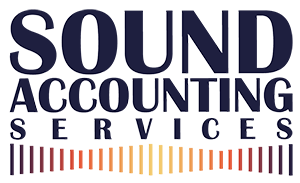The limited cost trader rules which will apply from 1 April 2017 are bound to result in many traders choosing to leave the flat rate scheme (FRS). But if you give the new rules a chance can you later opt out of the FRS retrospectively?
FRS recap
HMRC primarily intended the flat rate scheme (FRS) as a means of simplifying VAT accounting. However, many businesses can achieve VAT savings by using it. This has never sat well with HMRC. The limited cost trader (LCT) rules will put an end to VAT saving for many businesses causing them to opt out of the FRS or choose not to join it inthe first place ( yr.17, iss.6, pg.7 , see The next step ).
Tip. In some situations if you change your mind you can opt in or out of the FRS with retrospective effect.
Late registration
If you don’t register for VAT on time HMRC will impose backdated registration. In this situation it will be to your advantage to check if you meet the conditions for the FRS as HMRC will allow you to apply it retrospectively (see The next step ). As well as potentially reducing any VAT you owe, backdating the FRS means you won’t need to look back for details of purchases or invoices.
Other acceptable reasons to backdate
In other cases HMRC will allow retrospective joining of the FRS if you have good reasons. For example, if your business has missed one or two returns, an application to backdate the FRS to cover those periods will often be allowed if the reason you give for wanting retrospective treatment is for the “administrative savings”. In its internal guidance manuals HMRC gives some pointers on when it will and won’t apply the FRS retrospectively (see The next step ).
Leaving the FRS late
HMRC takes a similar approach to leaving the FRS retrospectively. You must have exceptional circumstances. For example, HMRC will take a sensible line in cases where VAT becomes payable in circumstances you didn’t expect.
Example. Jim is a self–employed consultant. He owns a buy–to–let property. He considers it to be an investment and is unaware that the FRS covers all business income, including rents. The effect of the FRS is that he has to account for VAT on rental income which would normally be exempt. In this situation HMRC would probably allow Jim to leave the FRS retrospectively because it would not be fair to collect VAT on the rent.
Too much VAT is not a good reason
There have been a few decisions by the First–tier Tribunal regarding failed applications to retrospectively leave the FRS where a business has paid more than it would have under normal VAT rules. In B Reynolds 2010 and Northern Renovations Ltd 2012 , HMRC’s refusal to allow retrospective cancellation despite it resulting in higher VAT bills was upheld because the traders simply didn’t bother to do their sums on time.
Tip. With the introduction of the LCT rules from 1 April 2017 you should review whether you might be better off out of the FRS. But in any event you should always keep an eye on whether the FRS is right for you.
Reproduced with the permission of Indicator – FL Memo Limited. For subscription information call 01233 653500;
